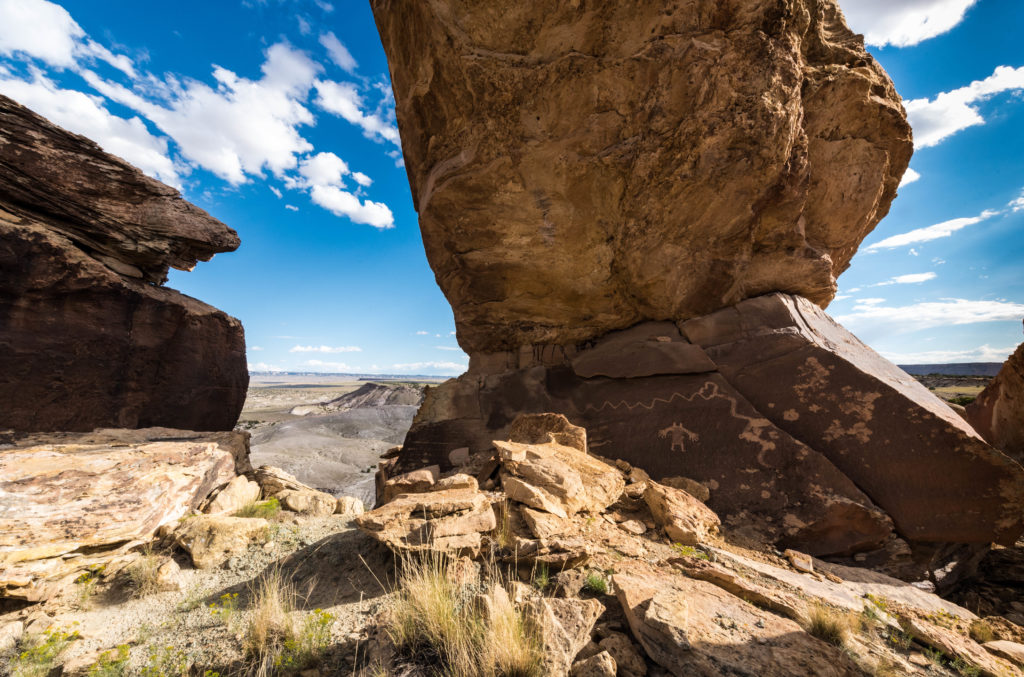On Friday, the U.S. House passed the Inflation Reduction Act, following a deal by Sen. Chuck Schumer (D-NY) and Sen. Joe Manchin (D-WV) that saw it pass the Senate earlier in the week. President Biden is expected to sign the bill sometime this week.
The White House says the “bill would make the single largest investment in climate and energy in American history, enabling America to tackle the climate crisis, [and] advancing environmental justice….”
Some of the big environmental wins include:
- Investments in clean energy and electric vehicles
- Reducing U.S. emissions by about 40% below 2005 levels by 2030
- Establishing a fee for excessive methane gas (a potent greenhouse gas) emissions from oil and gas drilling and development
- Earmarking $60 billion for environmental justice initiatives in communities that are disproportionately affected by climate change, air pollution, and other environmental ills
- Providing $250 million for conservation and resource protection projects to the National Park Service and Bureau of Land Management (BLM)
- Providing more than $2 billion for zero-emission equipment to reduce emissions at US ports
- Addressing community needs (tribal, state, local government) in addressing pollution, weather resilience, and mine reclamation through a block grant program

But what does the bill mean for Utah and the Colorado Plateau?
The bill contains important provisions that will reduce oil and gas lease speculation, which is rampant in Utah.
First, under current law, anyone can nominate public lands for oil and gas leasing, and can do so for free. This process encourages companies to nominate as much land as possible throughout Utah (and the West), requiring the BLM to expend significant time and energy reviewing these lease nominations –most of which are entirely speculative. The Inflation Reduction Act would establish a $5-per-acre fee to nominate parcels for leasing, which will reduce speculation by forcing companies to put up funds to nominate parcels.
Second, the Inflation Reduction Act raises the minimum bid price and eliminates noncompetitive, or “over-the-counter,” leasing. Both changes are long overdue and much needed. Currently, there are two ways to lease a parcel: 1) Through a competitive sale via auction, with a minimum bid of only $2 per acre, or 2) By purchasing, within two years, a “noncompetitive lease” that failed to sell at auction for just $1.50 per acre. These fire sale prices promote lease speculation and allow operators to lock up huge swaths of public lands. In contrast, the Inflation Reduction Act eliminates noncompetitive leasing altogether and raises the minimum competitive bid to $10 per acre.
Third, the Inflation Reduction Act raises the royalty and rental rates for leasing and development on public lands, bringing these rates closer to what operators pay for state and private land leases and development. Presently, before a lease is put into production, operators pay a nominal rental fee of as little as $1.50 per acre to hold the lease (oftentimes holding these leases for decades without ever putting them into production). The Act modernizes these rates while discouraging speculation by requiring rentals of $3 per acre for years 1-2, $5 per acre for years 3-8, and $15 per acre thereafter.
Finally, once a lease is put into production, operators currently pay just a 12.5% royalty on all oil and gas extracted from our public lands–a below market rate that, in effect, subsidizes development of publicly-owned lands and minerals. This rate is raised to 16.67% by the Act –which, while still too low, is a significant step in the right direction.
While the Inflation Reduction Act has a myriad of good things for public lands, climate change mitigation, and environmental justice, it is not perfect. One provision, offered as a compromise to win Sen. Manchin’s support, is a requirement that the Department of the Interior offer 2 million acres of public lands and 60 million acres of offshore waters for oil and gas leasing and development each year for the next decade, or a total of 20 million acres of land and 600 million acres of offshore waters offered for development over the next decade.
While this provision is concerning and frustrating to see included, the overall bill contains more good than bad, and represents the largest federal investment in climate mitigation and leasing reform to date.

